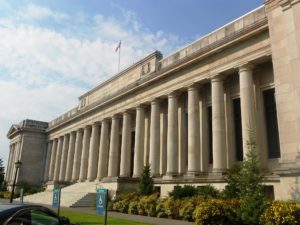Powerless to Powerful: Moving Washington State Schools Towards Excellence and Equity
 By Suzann Girtz, Ph.D., Associate Professor – Teacher Education, Gonzaga University
By Suzann Girtz, Ph.D., Associate Professor – Teacher Education, Gonzaga University
Guest Blogger
Imagine your school is in the bottom 5% of all Washington state schools for graduation. About one out of every two students will not graduate. And when people visit your school to question what’s happening, the students respond, “What do you expect?” They attribute the failures to themselves and maintain, “That’s just the way it is here.”
That is a quote from a student at Sunnyside High School several years ago. Its graduation rate hovered at 49%, students blamed themselves, teachers were exhausted, and everyone was working as hard as they could. It was difficult to envision this struggling school becoming a top performer in just a couple years – but it did. Significant change in a short time IS possible in our schools; we’ve experienced it.
 This morning the Washington State Supreme Court issued their latest order on the
This morning the Washington State Supreme Court issued their latest order on the  Office of the Superintendent of Public Instruction (OSPI) is proposing new student discipline rules as a result of changes to the law made by HB 1541 in 2016. HB 1541 requires that expulsions be no longer than an academic term (previously a year); students cannot be long-term suspended or expelled for “discretionary discipline;” school districts must provide educational services to students while they are suspended or expelled; and other changes to the development and distribution of district discipline policies, training, and reengagement plans.
Office of the Superintendent of Public Instruction (OSPI) is proposing new student discipline rules as a result of changes to the law made by HB 1541 in 2016. HB 1541 requires that expulsions be no longer than an academic term (previously a year); students cannot be long-term suspended or expelled for “discretionary discipline;” school districts must provide educational services to students while they are suspended or expelled; and other changes to the development and distribution of district discipline policies, training, and reengagement plans.